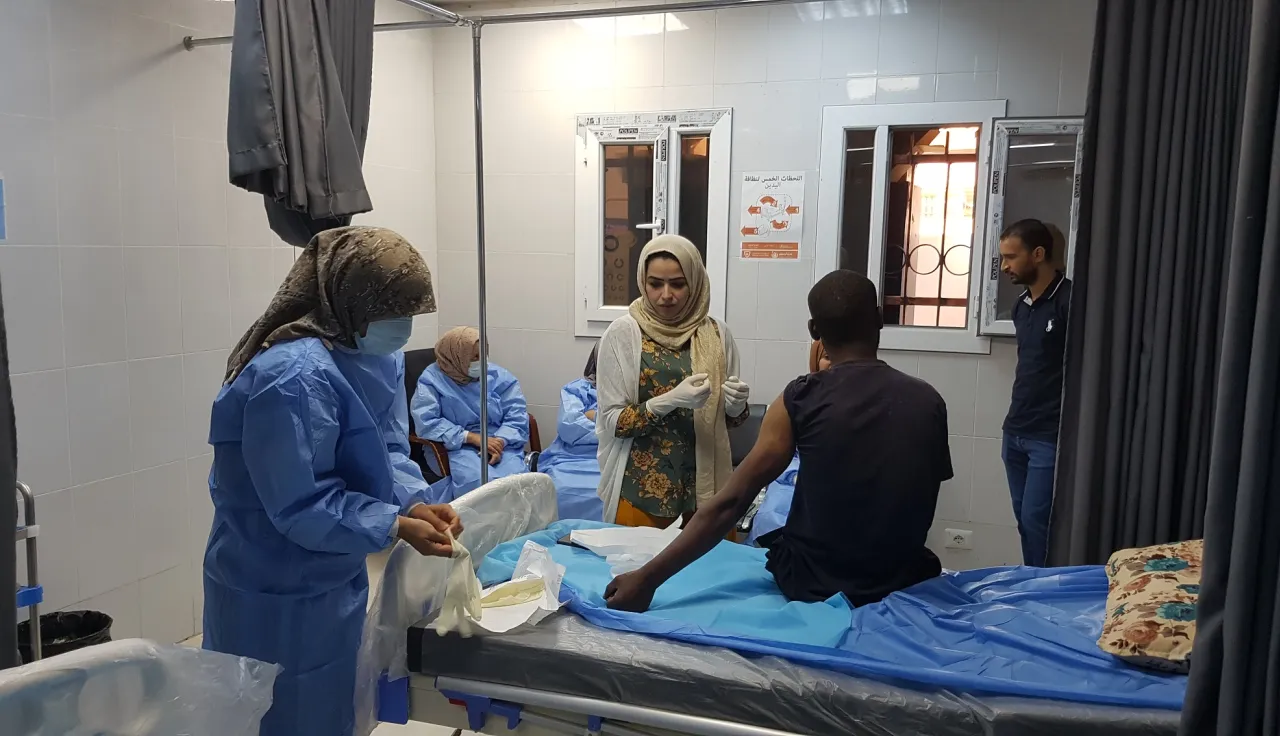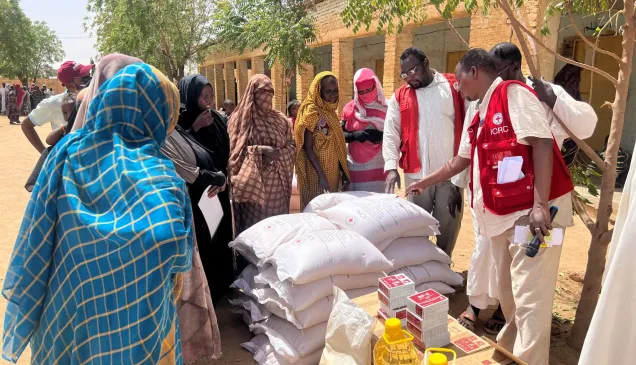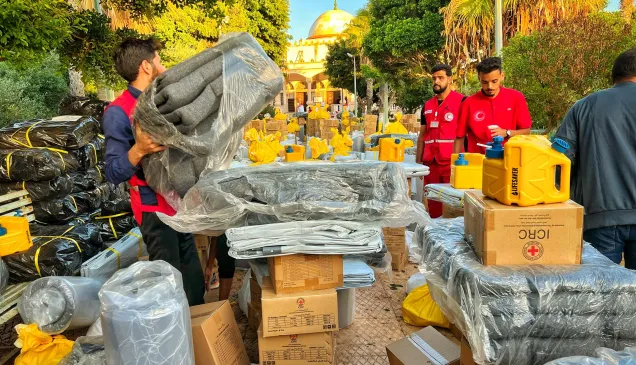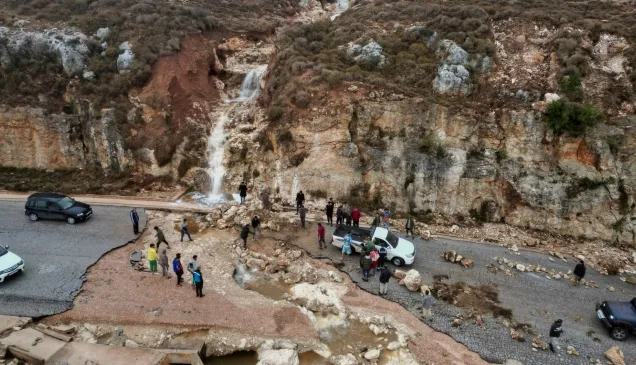“People live in fear" – A clinic on the front lines of Libya’s war

“The clashes are a big issue. On many occasions, the bombardment was close. Everything starts to shake around us, so we had to close [the clinic] and run out of fear. The conflict is intensifying every day. We live in fear, not knowing when a shell could fall on us all.”
Dr. Wijdan Sabri works at Khaled Ben Al-Walid primary health care centre in the Abu Salim municipality of Tripoli in Libya. Located less than two kilometers from Tripoli’s southern front lines, Abu Salim has been hard-hit by the current fighting in Tripoli. Month after month, people forced from their homes by the fighting have flooded into Abu Salim. Today, the area hosts more than 16,000 displaced families, who are spread out across collective centres (group homes for the displaced), relatives’ homes, and other makeshift arrangements.
In recent months, clashes have crept further into Abu Salim’s southern neighborhoods, leaving all residents vulnerable to shelling. As children play outside pockmarked homes to the sounds of artillery in the distance, parents fear for their safety but also for their own in these times of COVID-19 and conflict.
For Dr Sabri and the team at Khaled Ben Al-Walid clinic, this means they are at the forefront of the emergency health response, receiving both newly displaced patients suffering from chronic illnesses as well as those injured in the ongoing fighting.
“We have multiple outpatient clinics in the facility, each of which is receiving 300 to 400 patients per month,” said Dr Sabri. “These numbers can sometimes be as many as 700 patients during periods of heavy fighting and new displacement – way more than what such a small facility is equipped to handle. We had already been struggling with a lack of resources long before, with difficulties to obtain even the simplest of things like face masks and gloves.”
Watch this story of a clinic on the front lines of Libya’s war
Conflict and COVID-19 compound the challenges faced by medical workers on Libya’s front lines. Listen to Dr Wijdan who is working with her colleagues at this clinic in Abu Salim, Tripoli, amidst fighting and COVID-19 pic.twitter.com/2WqnejX4Iv— ICRC Libya (@ICRC_lby) May 21, 2020
Since 2011, the public health care system in Libya has become frail, with the cumulative impact of successive waves of conflict, compounded by a shortage of qualified medical staff and insufficient funding. With more than half a million people already in need of health care assistance before the most recent wave of fighting, and continuing population displacement, primary health-care facilities are facing increased pressure, all while resources to meet the increased needs are dwindling.
Fighting to the south of Abu Salim has forced more than half of the municipality’s 15 clinics to close. Remaining facilities such as Khaled Ben Al-Walid have been forced to crank up their response, despite the lack of supplies and equipment. A sudden influx of patients at the local trauma hospital injured by shelling not only depletes the energy of the over-stretched medical staff but also risks overwhelming the entire municipal health system’s already-depleted material resources.
For Khaled Ben Al-Walid, one of the few designated referral health facilities for suspected COVID-19 cases, the pandemic has only added to a debilitating cycle of never-ending needs and increasingly limited resources.
COVID-19 adds to the daily challenges with which we’ve been struggling to cope. Many of our staff members, most of whom are themselves displaced, have progressively moved further out of Tripoli when they could no longer afford rent and therefore no longer work in our facilities,
“Others remain on leave as they are scared of bringing the virus home, given the severe shortages we have in personal protective equipment and lack of training on preventive measures.”
To ensure medical teams across Abu Salim can continue safely providing services to both the displaced population and host community, the ICRC has been supporting six health care facilities in the municipality with equipment and supplies, including Khaled Ben Al-Walid, for the last year.
Meanwhile, Dr Sabri and her colleagues continue to show up to work despite all odds.
“After almost 400 days of fighting, people live in fear where a shell or a projectile or a rocket could hit at any moment,” she said. “This is the biggest concern. People’s biggest fear is to die, but here it’s even worse: to die in shreds rather than a normal death. It’s not easy for us to carry on with our daily routine. It’s stressful indeed, whether on a personal, psychological, and professional level.”



